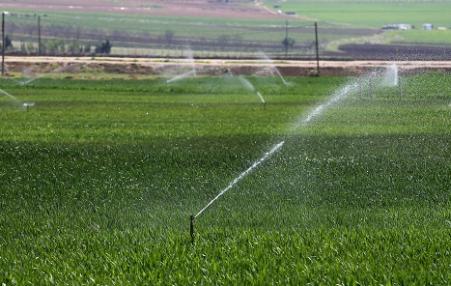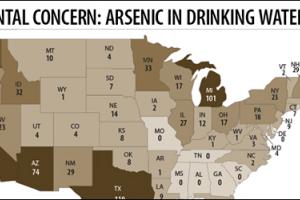Fracking Wastewater Spikes 1,440 Percent in Half Decade, Adding to Dry Regions’ Water Woes
DESMOG
 In the USA privatization practices contribute to increased water bills and jeopardize water quality, endangering one of residents' most basic needs. We can gain some perspective on the consequences of water privatization by looking to a glaring overseas example: In Lebanon, mismanagement of infrastructure has provided ample opportunity for privatization to proliferate. In both cases, the pursuit of privatization comes from cash-strapped places prioritizing cost-cutting over resource conservation and quality.
In the USA privatization practices contribute to increased water bills and jeopardize water quality, endangering one of residents' most basic needs. We can gain some perspective on the consequences of water privatization by looking to a glaring overseas example: In Lebanon, mismanagement of infrastructure has provided ample opportunity for privatization to proliferate. In both cases, the pursuit of privatization comes from cash-strapped places prioritizing cost-cutting over resource conservation and quality.
 On June 23rd, EPA Administrator Scott Pruitt expressed that a proposal to repeal the Clean Water Rule enacted in 2015 would be sent out by the EPA and Army Corps of Engineers. This proposed repeal would not only bring back the confusion and discord over what exactly the Clean Water Act protects, but would make it easier for polluters to contaminate the nation's waters.
On June 23rd, EPA Administrator Scott Pruitt expressed that a proposal to repeal the Clean Water Rule enacted in 2015 would be sent out by the EPA and Army Corps of Engineers. This proposed repeal would not only bring back the confusion and discord over what exactly the Clean Water Act protects, but would make it easier for polluters to contaminate the nation's waters.
 In the last few years the amount of geospatial information - electronic maps - that's become available is large. Information is available on such factors as climate data, land use, and distance to the river or elevation. Using this information, and by looking at the types of rocks present in the country, and in particular their age, the researchers pinpointed the regions where the toxic element is most likely to be found.
In the last few years the amount of geospatial information - electronic maps - that's become available is large. Information is available on such factors as climate data, land use, and distance to the river or elevation. Using this information, and by looking at the types of rocks present in the country, and in particular their age, the researchers pinpointed the regions where the toxic element is most likely to be found.
Spread the word